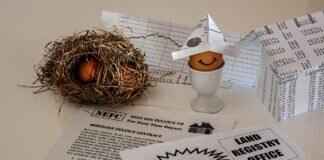Oracles are pivotal components in the blockchain ecosystem, acting as essential intermediaries that facilitate the interaction between smart contracts and real-world data. By bridging the gap between on-chain and off-chain information, oracles enable smart contracts to execute based on actual events, thus enhancing their functionality and applicability across various sectors.
Understanding the different types of oracles is crucial. There are primarily two categories: software oracles and hardware oracles. Software oracles retrieve data from online sources, such as APIs and websites, and relay it to smart contracts. They are commonly employed in decentralized finance (DeFi) applications to provide accurate price feeds for trading and lending. In contrast, hardware oracles connect physical devices to the blockchain, delivering real-time data such as temperature or GPS coordinates, which is vital for applications that require immediate physical inputs.
Among the use cases for software oracles, price feeds in DeFi stand out. For instance, Chainlink has gained recognition for its reliable price feed services. These services ensure that smart contracts can access up-to-date price data, thereby enabling accurate trading and lending decisions. However, software oracles are not without challenges. They face risks such as data manipulation and reliance on centralized sources, which can compromise the integrity of the smart contracts they support.
On the other hand, hardware oracles play a critical role in providing real-world data to blockchains. These oracles are essential for applications that depend on real-time information, such as supply chain management, where temperature readings from sensors can trigger actions in smart contracts, ensuring product quality throughout the supply chain.
Oracles can be further categorized into inbound and outbound oracles. Inbound oracles deliver external data to smart contracts, allowing them to respond to real-world events, such as changes in market prices or environmental conditions. Conversely, outbound oracles send data from smart contracts to external systems, enabling actions like executing payments or notifying users based on predefined conditions.
The significance of decentralization in oracles cannot be overstated. Decentralized oracles aggregate data from multiple sources, thus reducing the risk of manipulation and enhancing reliability. Projects like Chainlink and Band Protocol exemplify this approach by utilizing a network of nodes to provide trustworthy data, thereby increasing trust in smart contracts and enabling more complex decentralized applications.
Despite their importance, oracles face substantial security challenges, including vulnerabilities to hacking and data tampering. Common vulnerabilities involve Sybil attacks and data spoofing, which can undermine the reliability of the data provided. To mitigate these risks, implementing security measures such as multi-signature wallets and regular audits is essential for ensuring the integrity of smart contracts.
Looking ahead, the role of oracles in blockchain is expected to expand significantly. Emerging trends include the integration of artificial intelligence to enhance data accuracy and predictive capabilities. Potential future use cases span various sectors, including healthcare, insurance, and gaming, demonstrating the versatility and importance of oracles within the blockchain ecosystem.
In conclusion, oracles are indispensable for the effective functioning of smart contracts, enabling them to interact seamlessly with real-world data. As the technology matures, addressing security and decentralization challenges will be paramount for their continued evolution and broader adoption in the blockchain landscape.
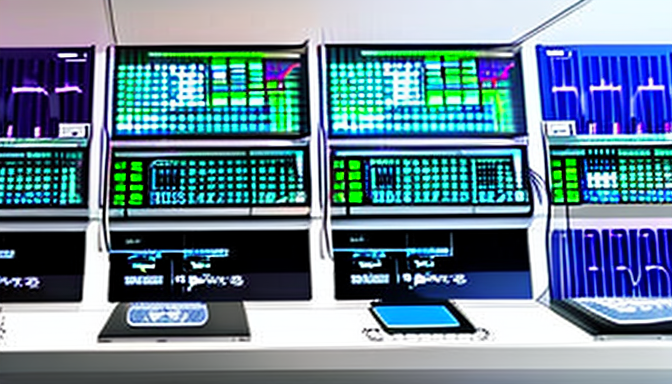
Understanding Oracles
is a fundamental aspect of blockchain technology, particularly in the context of smart contracts. Oracles act as essential bridges between the blockchain and the external world, enabling smart contracts to access and utilize real-world data. This capability is critical for the execution of contracts that depend on information not stored on the blockchain, such as market prices, weather conditions, or even social media sentiments.
At their core, oracles are designed to fetch, verify, and transmit data from external sources to the blockchain. This process allows smart contracts to make decisions based on real-time information. For instance, in the realm of decentralized finance (DeFi), oracles can provide accurate price feeds for various cryptocurrencies, ensuring that trading and lending protocols function smoothly and without discrepancies.
One of the most widely recognized examples of oracles is Chainlink, which aggregates data from multiple sources to deliver reliable price feeds to smart contracts. This decentralized approach mitigates risks associated with data manipulation and single points of failure, thereby enhancing the trustworthiness of the information provided.
However, the operation of oracles is not without challenges. One major concern is the potential for data manipulation, where malicious actors could alter the information being transmitted. To combat this, decentralized oracles employ a network of nodes that collectively validate the data before it reaches the smart contract. This method significantly reduces the risk of tampering and ensures data integrity.
Another type of oracle is the hardware oracle, which connects physical devices to the blockchain. For example, a temperature sensor can relay real-time data to a smart contract designed to execute actions based on specific temperature thresholds. This functionality is vital for industries such as agriculture and logistics, where environmental conditions can directly impact operations.
- Inbound Oracles: These oracles bring external data into the blockchain, allowing smart contracts to respond to events such as price changes or weather updates.
- Outbound Oracles: These enable smart contracts to communicate with external systems, executing actions like sending notifications or processing payments based on predefined conditions.
As the blockchain landscape evolves, the role of oracles will become increasingly critical. The integration of advanced technologies, such as artificial intelligence, can further enhance the accuracy and reliability of data provided by oracles. This advancement will open new avenues for smart contracts, allowing for more complex and innovative applications across various sectors.
In conclusion, understanding oracles is essential for grasping the full potential of blockchain technology. By facilitating the flow of real-world data to smart contracts, oracles not only enhance their functionality but also foster greater trust and reliability in decentralized applications.
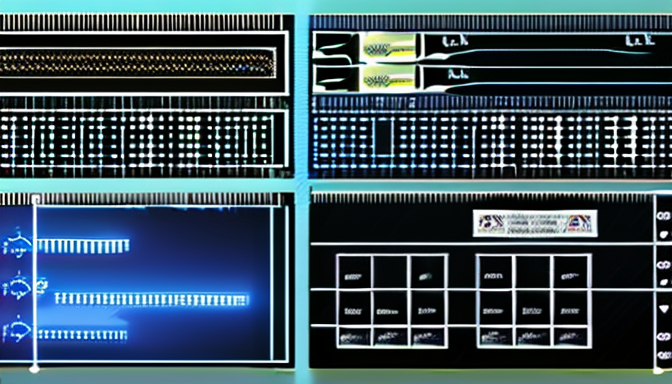
Types of Oracles
Oracles play a pivotal role in the seamless integration of smart contracts with real-world data. Understanding the is essential for grasping how they contribute to the blockchain ecosystem. Each type serves a unique purpose, ensuring that smart contracts can function effectively by accessing the necessary information from external sources.
One of the primary classifications of oracles is software oracles. These oracles retrieve data from online platforms, such as APIs or websites, and relay it to smart contracts. For example, in the decentralized finance (DeFi) sector, software oracles are crucial for providing real-time price feeds. A well-known instance is Chainlink, which aggregates price data from various exchanges to ensure accuracy and reliability in trading applications.
Another important category is hardware oracles, which connect physical devices to the blockchain. These oracles are vital for applications that require real-time data from the physical world, such as environmental sensors that monitor temperature or humidity. By providing such data, hardware oracles enable smart contracts to execute actions based on real-world conditions.
Oracles can also be divided into inbound and outbound oracles. Inbound oracles are responsible for delivering external data to smart contracts, allowing them to respond to events like market fluctuations or weather changes. This functionality enhances the capabilities of smart contracts, making them more versatile and responsive to real-time data.
Conversely, outbound oracles facilitate communication from smart contracts to external systems. This means that once a smart contract’s conditions are met, it can trigger actions such as executing payments or sending notifications. This two-way communication is crucial for creating dynamic and interactive applications within the blockchain ecosystem.
In addition to these classifications, the decentralization of oracles is a significant factor in ensuring data integrity. Decentralized oracles aggregate information from multiple sources, minimizing the risk of manipulation and enhancing reliability. Projects like Band Protocol exemplify this approach by utilizing a network of nodes to provide trustworthy data.
In summary, the diverse types of oracles—software, hardware, inbound, and outbound—each fulfill specific roles that are essential for the functionality of smart contracts. Understanding these distinctions not only aids developers in creating more effective applications but also enhances the overall reliability of the blockchain ecosystem.
Software Oracles
play a pivotal role in the blockchain ecosystem, acting as essential conduits that facilitate the flow of real-world data to smart contracts. These oracles gather data from various online sources, including APIs, websites, and databases, and relay this information to blockchain applications. This function is particularly crucial in the realm of decentralized finance (DeFi), where accurate and timely data is necessary for executing trades, loans, and other financial transactions.
One of the most significant applications of software oracles is in providing price feeds. For instance, platforms like Chainlink have established themselves as leaders in this space, offering reliable price data that is crucial for the functionality of numerous DeFi applications. By sourcing data from multiple exchanges and aggregating it, these oracles mitigate the risks associated with relying on a single source. This aggregation not only enhances the accuracy of the data but also adds a layer of security against potential manipulation.
However, the deployment of software oracles is not without challenges. One major concern is the risk of data manipulation. If an oracle is compromised or if it relies on a centralized source, the integrity of the smart contracts it supports could be jeopardized. This concern has led to the development of decentralized oracles, which aggregate data from multiple independent sources to improve reliability and reduce the risk of tampering.
In addition to price feeds, software oracles have applications in various sectors, including insurance and supply chain management. For example, in the insurance industry, oracles can provide real-time data regarding weather conditions, enabling smart contracts to automatically execute claims when predefined conditions are met. This innovation streamlines processes and enhances customer satisfaction by ensuring timely responses to claims.
Despite their advantages, software oracles face significant security challenges. Vulnerabilities such as Sybil attacks and data spoofing can undermine their effectiveness. To address these issues, developers are increasingly implementing security measures like multi-signature wallets and conducting regular audits of oracle systems. These strategies are essential for maintaining the trustworthiness of the data being relayed to smart contracts.
As the blockchain landscape evolves, the role of software oracles will become even more critical. Emerging trends indicate a growing integration of artificial intelligence with oracle technology, enhancing data accuracy and predictive capabilities. This fusion could revolutionize the decision-making processes of smart contracts, paving the way for more complex and efficient decentralized applications.
In conclusion, software oracles are indispensable to the functionality of smart contracts, bridging the gap between real-world data and blockchain applications. Their ability to provide accurate and reliable information is crucial for the growth and adoption of decentralized technologies. As the industry continues to mature, addressing the challenges of security and decentralization will be paramount for the future of oracles.
Use Case: Price Feeds
In the realm of decentralized finance (DeFi), the significance of software oracles cannot be overstated. These oracles serve as vital components that provide real-time price data for various assets, which is essential for accurate trading and lending activities. Without reliable data feeds, the entire ecosystem could face substantial risks, leading to mispricing and financial instability.
One prominent example of a software oracle is Chainlink, which has established itself as a leader in providing decentralized price feeds. Chainlink aggregates data from multiple sources, ensuring that the information it delivers is not only accurate but also resistant to manipulation. This decentralized approach mitigates the risks associated with relying on a single data source, which is crucial for maintaining the integrity of smart contracts.
Research indicates that the reliability of price feeds directly impacts the performance of DeFi platforms. For instance, a study published in the Journal of Financial Technology highlights that platforms utilizing Chainlink’s price feeds experienced significantly lower instances of price manipulation compared to those relying on centralized oracles. This underscores the importance of decentralized data provision in fostering a safer trading environment.
Moreover, the application of software oracles extends beyond just price feeds; they are integral in facilitating various financial instruments such as derivatives and lending protocols. By providing accurate and timely data, oracles enable smart contracts to execute transactions automatically based on predefined conditions, thereby enhancing operational efficiency.
However, the reliance on software oracles also presents challenges. Issues such as data manipulation risks and the potential for outages in data provision can jeopardize the functionality of smart contracts. For example, if an oracle fails to deliver timely data during a market crash, it could lead to significant financial losses for users relying on that information. Therefore, the development of robust security measures and contingency plans is essential.
In conclusion, software oracles play a crucial role in the DeFi landscape by providing essential price data that enables accurate trading and lending. As the ecosystem continues to evolve, the focus on enhancing the reliability and security of these oracles will be paramount. Future advancements may include the integration of machine learning algorithms to improve data accuracy and predictive capabilities, further solidifying the role of oracles in the financial sector.
| Aspect | Importance |
|---|---|
| Data Integrity | Ensures reliable execution of smart contracts |
| Decentralization | Reduces risks of manipulation |
| Real-Time Data | Enables timely trading decisions |
- Chainlink: A leader in decentralized price feeds.
- Data Aggregation: Collects information from multiple sources for accuracy.
- Market Impact: Direct correlation between reliable data and platform performance.
Challenges of Software Oracles
Software oracles are pivotal in the blockchain ecosystem, acting as conduits that facilitate the flow of real-world data into smart contracts. However, their operation is fraught with significant challenges that can undermine the integrity and reliability of the smart contracts they support.
One of the primary concerns surrounding software oracles is the risk of data manipulation. When oracles pull information from online sources, such as APIs or websites, they become susceptible to various forms of tampering. For instance, if an oracle retrieves price data from a compromised source, it can lead to erroneous contract executions, potentially resulting in substantial financial losses for users. A notable example is the infamous incident involving the decentralized finance (DeFi) platform bZx, where manipulated price feeds led to significant liquidations.
Furthermore, software oracles often rely on centralized sources for their data feeds. This reliance poses a risk of single points of failure, where the compromise of one source could jeopardize the entire system. In a decentralized environment, such vulnerabilities contradict the fundamental principles of blockchain technology, which is built on the premise of trustlessness and decentralization. The case of the Ethereum-based project, Chainlink, illustrates this challenge; although it aggregates data from multiple sources, any central source’s failure could still impact the overall data integrity.
Moreover, the issue of latency can affect the performance of software oracles. Real-time decision-making is crucial in many applications, especially in trading and finance. If an oracle experiences delays in fetching data, it could result in missed opportunities or incorrect contract executions. For example, in high-frequency trading, even a few seconds of delay can lead to significant financial repercussions.
To mitigate these challenges, the development of decentralized oracles has gained traction. These oracles aggregate data from multiple independent sources, thus reducing the risk of manipulation and enhancing reliability. Projects like Band Protocol and Chainlink employ decentralized networks to provide trustworthy data. By leveraging multiple data points, these oracles aim to create a more robust framework that aligns with the decentralized ethos of blockchain technology.
In conclusion, while software oracles are essential for the functionality of smart contracts, they face challenges that can significantly impact their reliability. Addressing these issues through decentralization and robust security measures is crucial for the continued evolution and adoption of blockchain technology.
Hardware Oracles
serve a pivotal role in the blockchain ecosystem by connecting physical devices to the blockchain, thereby facilitating the transfer of real-world data such as temperature readings, GPS coordinates, and other environmental metrics. This integration is particularly crucial for applications that rely on real-time data to function effectively, such as supply chain management, healthcare monitoring, and autonomous vehicles.
In the context of healthcare, for instance, hardware oracles can be employed to monitor patient vitals through wearable devices. These devices can transmit data directly to a blockchain network, allowing for real-time updates to patient records and enabling healthcare providers to respond promptly to critical changes in a patient’s condition. A study published in the Journal of Medical Internet Research highlighted that real-time monitoring using blockchain technology enhances patient safety and improves treatment outcomes.
Another significant application of hardware oracles can be found in the realm of agriculture. Smart farming technologies utilize sensors that monitor soil moisture, temperature, and nutrient levels. This data is then relayed to a blockchain, allowing farmers to make informed decisions about irrigation and fertilization. Research conducted by the International Journal of Agricultural Science demonstrated that farms using such technology experienced a 20% increase in crop yields due to optimized resource management.
Furthermore, hardware oracles are essential in the logistics sector. For instance, GPS-enabled devices can track the location of shipments in real-time, providing transparency and accountability in supply chains. By integrating this data with blockchain, stakeholders can verify the authenticity of goods and ensure compliance with regulatory standards. A report by the Harvard Business Review emphasized that companies employing hardware oracles in logistics saw a reduction in fraud and an increase in operational efficiency.
Despite their advantages, implementing hardware oracles does come with challenges. Issues such as data privacy, security vulnerabilities, and the need for standardization across devices can complicate their deployment. Moreover, ensuring the accuracy of the data collected is paramount, as erroneous readings can lead to significant consequences in critical applications. To mitigate these risks, developers are encouraged to adopt robust security measures, including encryption and multi-factor authentication.
In conclusion, hardware oracles represent a transformative technology that bridges the gap between the physical world and blockchain applications. Their ability to deliver real-time, reliable data enhances the functionality of smart contracts across various sectors, from healthcare to agriculture and logistics. As the technology evolves, addressing the associated challenges will be crucial for maximizing the potential of hardware oracles in the blockchain ecosystem.
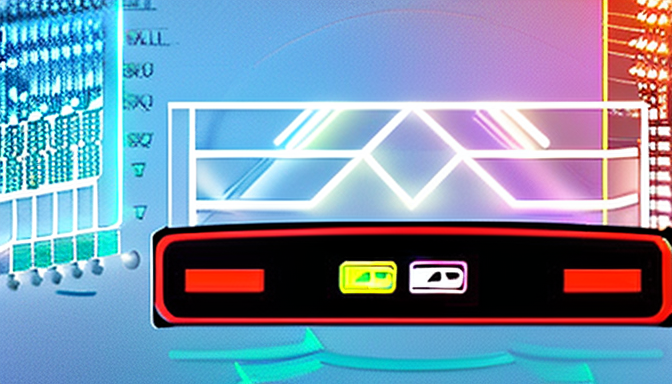
Inbound vs. Outbound Oracles
Inbound and outbound oracles play a pivotal role in the functioning of smart contracts within the blockchain ecosystem. These oracles act as bridges between the real world and blockchain technology, facilitating the flow of information in both directions. Understanding the distinct functionalities of inbound and outbound oracles is essential for developers and users alike, as it impacts how smart contracts interact with external data and systems.
Inbound oracles are designed to bring external data into the blockchain. They enable smart contracts to access real-time information from various sources, such as market prices, weather data, or sports scores. For instance, in decentralized finance (DeFi), inbound oracles can provide up-to-date pricing information for cryptocurrencies, allowing smart contracts to execute trades or loans based on current market conditions. A well-known example is Chainlink, which aggregates data from multiple sources to ensure accuracy and reliability.
On the other hand, outbound oracles serve the opposite function by sending data from smart contracts to external systems. This can include triggering actions such as executing payments, sending notifications, or updating external databases when certain conditions within the smart contract are met. For example, an outbound oracle might notify a payment processor to execute a transaction once a smart contract has verified that specific criteria have been fulfilled, such as the completion of a service or delivery of goods.
The distinction between these two types of oracles is crucial because it influences how smart contracts can be designed and what kinds of applications can be built. Developers must consider which type of oracle is appropriate for their specific use case. For instance, a supply chain management application might utilize both inbound and outbound oracles to track goods in real-time and ensure that payments are made upon delivery.
Moreover, the reliability of oracles is paramount. Inbound oracles must source data from trustworthy and decentralized platforms to mitigate risks associated with data manipulation. Similarly, outbound oracles should ensure secure communication with external systems to prevent unauthorized access or execution of transactions.
In conclusion, the functionalities of inbound and outbound oracles are integral to the operational capabilities of smart contracts. By understanding these distinctions, developers can better harness the potential of blockchain technology, creating more robust and responsive applications that interact seamlessly with the real world.
Inbound Oracles
play a crucial role in the blockchain ecosystem by serving as the essential bridges that connect smart contracts to real-world data. These oracles enable smart contracts to dynamically respond to external events, enhancing their operational capacity and functionality. For instance, they can relay important information such as market prices, weather conditions, and other relevant data streams that influence the execution of smart contracts.
Inbound oracles are particularly significant in decentralized finance (DeFi), where timely and accurate data is paramount. A notable example is the use of price feeds for cryptocurrencies. Without inbound oracles, smart contracts would lack the necessary information to execute trades or manage assets effectively. This reliance on real-time data underscores the importance of having robust and reliable inbound oracles in place.
One of the most recognized projects utilizing inbound oracles is Chainlink. Chainlink provides decentralized oracles that aggregate data from multiple sources, significantly reducing the risk of manipulation and ensuring data integrity. This decentralized approach is vital, as it prevents any single point of failure that could jeopardize the functionality of smart contracts relying on this data.
Moreover, inbound oracles also find applications in various industries beyond finance. For example, in the agriculture sector, inbound oracles can provide real-time weather data to smart contracts that automate insurance payouts for crop failures due to adverse weather conditions. This capability not only streamlines operations but also enhances trust among stakeholders, as the data utilized is verifiable and timely.
However, the implementation of inbound oracles is not without challenges. Security vulnerabilities, such as data tampering and hacking attempts, pose significant risks. To mitigate these challenges, developers are increasingly adopting advanced security measures, including multi-signature authentication and regular audits of oracle systems.
- Data Integrity: Ensuring that the data received from inbound oracles is accurate and tamper-proof is critical.
- Decentralization: Utilizing multiple data sources can enhance reliability and reduce the risk of manipulation.
- Real-Time Processing: The ability to process and relay data in real-time is essential for the effectiveness of inbound oracles.
In conclusion, inbound oracles are indispensable for the functionality of smart contracts, enabling them to access and react to external data. As industries continue to explore the potential of blockchain technology, the role of inbound oracles will only grow in importance. Ensuring their reliability and security will be crucial for the successful integration of smart contracts into various applications, paving the way for innovative solutions across multiple sectors.
Outbound Oracles
play a pivotal role in the functionality of smart contracts by enabling them to communicate with external systems. This interaction is essential for executing various actions, such as making payments or sending notifications when certain predefined conditions are met within the contract. By bridging the gap between blockchain technology and the real world, outbound oracles enhance the capabilities of smart contracts significantly.
One of the primary functions of outbound oracles is to facilitate transactions. For instance, in decentralized finance (DeFi), when a smart contract requires a payment to be executed, it can utilize an outbound oracle to trigger the transaction to an external payment system. This ensures that the funds are transferred accurately and efficiently, based on the conditions established in the smart contract. Such mechanisms not only streamline processes but also reduce the risk of human error.
Moreover, outbound oracles can be programmed to send alerts or notifications to users or other systems when specific criteria are met. For example, if a smart contract is designed to release funds upon the completion of a task, the outbound oracle can notify the involved parties once the task is verified. This feature is particularly useful in supply chain management, where timely notifications can lead to improved operational efficiency.
Research shows that the integration of outbound oracles can significantly enhance user experience and trust in blockchain applications. A study conducted by the Blockchain Research Institute highlights that applications utilizing outbound oracles experience a higher rate of user engagement due to the increased transparency and reliability of the interactions. Users can be assured that their transactions are executed as intended, without the need for manual intervention.
However, the implementation of outbound oracles is not without challenges. Security remains a significant concern, as these oracles must ensure that the data they transmit is accurate and tamper-proof. Vulnerabilities such as data spoofing or unauthorized access can compromise the integrity of the transactions. To mitigate these risks, developers are encouraged to adopt robust security protocols, including encryption and multi-signature authentication.
In conclusion, outbound oracles are essential components of the blockchain ecosystem, enabling smart contracts to interact seamlessly with external systems. Their ability to execute payments and trigger notifications based on predefined conditions enhances the overall functionality and reliability of smart contracts. As the technology continues to evolve, addressing security challenges and ensuring the accuracy of data will be critical for the widespread adoption of outbound oracles in various sectors.
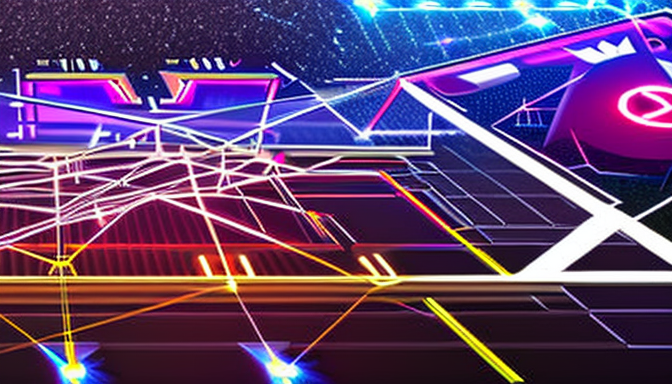
The Importance of Decentralization
Decentralization stands as a fundamental tenet of blockchain technology, significantly influencing its architecture and functionality. This principle ensures that no single entity holds control over the network, thereby enhancing security and resilience. In the context of oracles, which serve as vital intermediaries connecting smart contracts with external data, adhering to decentralization is crucial for maintaining data integrity and minimizing the risk of manipulation.
Oracles can be categorized into two primary types: centralized and decentralized. Centralized oracles, while easier to implement, pose significant risks. They create a single point of failure, where the failure or compromise of the oracle can lead to erroneous data being fed into the smart contract, potentially resulting in financial losses or erroneous contract executions. For instance, a centralized price feed might be easily manipulated, leading to unfair trading conditions in decentralized finance (DeFi) applications.
In contrast, decentralized oracles aggregate data from multiple independent sources, significantly reducing the risk of manipulation. Projects like Chainlink and Band Protocol exemplify this approach. By utilizing a network of nodes that independently verify and aggregate data, these decentralized oracles enhance the reliability of the information provided to smart contracts. Such a structure not only ensures data accuracy but also builds trust among users, as the consensus mechanism employed by these networks mitigates the risks associated with data tampering.
Moreover, the implications of decentralization extend beyond mere data integrity. It fosters a more equitable ecosystem where participants can engage without fear of centralized control. For example, in supply chain management, decentralized oracles can verify the authenticity of goods by pulling data from various sources, such as manufacturers, distributors, and regulatory bodies. This multi-source validation process enhances transparency and accountability throughout the supply chain.
However, the journey towards fully decentralized oracle systems is not without challenges. Issues such as network congestion, data latency, and the need for robust consensus mechanisms must be addressed to ensure seamless operation. Additionally, the integration of artificial intelligence and machine learning with decentralized oracles presents exciting opportunities for improving data accuracy and predictive capabilities.
In conclusion, the importance of decentralization in the realm of oracles cannot be overstated. It not only safeguards the integrity of data but also empowers users by promoting a fairer and more transparent blockchain ecosystem. As the technology continues to evolve, the commitment to decentralization will be paramount in unlocking the full potential of smart contracts and their applications across various sectors.
Decentralized Oracles
Decentralized oracles play a pivotal role in the blockchain ecosystem by aggregating data from multiple sources, which significantly reduces the risk of data manipulation and enhances reliability. Unlike centralized oracles, which depend on a single source of information, decentralized oracles utilize a network of nodes to gather and verify data. This collective approach ensures that the information fed into smart contracts is accurate and tamper-proof.
One of the most notable examples of decentralized oracles is Chainlink. Chainlink employs a decentralized network of independent nodes that fetch data from various sources, ensuring that no single point of failure can compromise the integrity of the information. This method not only improves reliability but also fosters trust among users and developers who rely on accurate data for their applications. Similarly, Band Protocol operates on a decentralized framework, enabling users to access a wide range of data while maintaining high levels of security and integrity.
The importance of decentralized oracles extends beyond mere data aggregation. They facilitate the creation of complex decentralized applications (dApps) by providing essential real-world data that smart contracts need to execute properly. For instance, in decentralized finance (DeFi), accurate price feeds are crucial for trading, lending, and borrowing activities. By employing decentralized oracles, platforms can ensure that their price feeds are not subject to manipulation, thus maintaining fairness and transparency in transactions.
Moreover, decentralized oracles enhance the overall security of blockchain applications. By relying on a multitude of data sources, the chances of a successful attack, such as a Sybil attack or data spoofing, are significantly reduced. This decentralized approach makes it difficult for malicious actors to alter the data, thereby bolstering the security posture of smart contracts.
In addition to security benefits, decentralized oracles contribute to the scalability of blockchain networks. As these oracles aggregate data from numerous sources, they can handle larger volumes of transactions and provide more comprehensive information. This scalability is essential for the growth of blockchain technology, as it allows for the development of more sophisticated applications across various sectors, including insurance, supply chain management, and gaming.
In conclusion, decentralized oracles are indispensable to the blockchain ecosystem. By aggregating data from multiple sources, they enhance reliability, security, and scalability, enabling the development of complex dApps and fostering trust among users. As the technology continues to evolve, the role of decentralized oracles will become increasingly significant, paving the way for innovative solutions that leverage real-world data in a secure and decentralized manner.
Real-World Implications
The reliance on decentralized oracles has broad implications for the evolution of smart contracts and decentralized applications (dApps). By enhancing the trustworthiness of data inputs, decentralized oracles enable smart contracts to function with greater reliability and accuracy. This shift not only promotes user confidence but also opens the door for more sophisticated applications across various sectors, including finance, healthcare, and supply chain management.
In traditional systems, users often place their trust in centralized entities to provide accurate data. However, this model is fraught with risks, including data manipulation and single points of failure. Decentralized oracles mitigate these risks by aggregating data from multiple independent sources. For example, in the financial sector, platforms like Chainlink utilize a network of nodes to provide price feeds that are resistant to tampering. This mechanism enhances the integrity of transactions, ensuring that users can rely on the data driving their smart contracts.
Moreover, the integration of decentralized oracles into various industries can lead to the development of complex dApps that were previously unfeasible. In healthcare, for instance, decentralized oracles can facilitate real-time data sharing between medical devices and blockchain networks, enabling improved patient monitoring and data accuracy. A study published in the Journal of Medical Internet Research highlights how blockchain technology, combined with oracles, can enhance patient data security while allowing for seamless interoperability among healthcare providers.
Furthermore, decentralized oracles can revolutionize supply chain management by providing real-time tracking and verification of goods. By utilizing oracles to relay data from IoT devices, companies can ensure that the information regarding product conditions—such as temperature and humidity—is accurate and tamper-proof. This capability not only enhances operational efficiency but also boosts consumer confidence in product authenticity.
- Increased Trust: Users are more likely to engage with smart contracts knowing that the data is sourced from multiple independent providers.
- Complex Applications: The ability to integrate diverse data sources allows for the development of sophisticated dApps that can respond to real-time conditions.
- Sector Versatility: Applications span across finance, healthcare, supply chain, and beyond, showcasing the broad applicability of decentralized oracles.
In conclusion, the implications of relying on decentralized oracles are profound. They not only enhance the trustworthiness of smart contracts but also pave the way for innovative applications across multiple sectors. As the technology continues to mature, it is crucial for developers and stakeholders to prioritize the integration of decentralized oracles to harness their full potential.
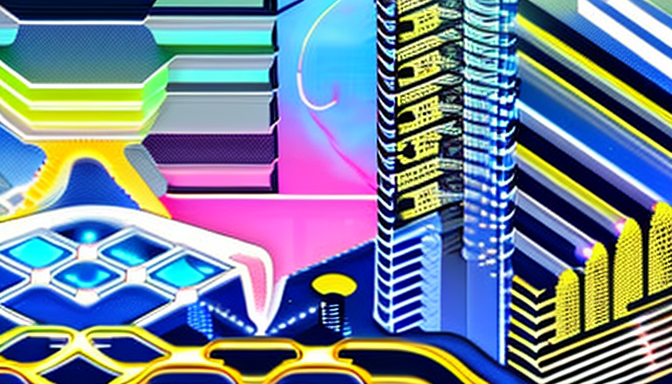
Security Concerns
Oracles, while integral to the functionality of smart contracts, face numerous security challenges that can undermine their reliability. These challenges include vulnerabilities to hacking, data tampering, and various forms of cyberattacks. Addressing these security issues is essential for the broader adoption of smart contracts across various industries.
One of the most pressing concerns is the risk of **data manipulation**. Oracles often rely on external data sources, which can be compromised. For instance, if an oracle fetches price data from a single source and that source is hacked, the smart contracts relying on that data could execute transactions based on incorrect information. This scenario highlights the necessity for **decentralized oracles** that aggregate data from multiple sources to minimize risks associated with relying on a single point of failure.
Another significant vulnerability is the potential for **Sybil attacks**, where a malicious actor creates multiple identities to gain disproportionate influence over the oracle system. This can lead to the dissemination of false data, ultimately affecting the integrity of the smart contracts that depend on that information. To combat this, developers are encouraged to implement robust identity verification protocols and utilize multiple data sources to ensure accuracy.
Furthermore, **data spoofing** is a technique where attackers manipulate the data that oracles receive, leading to erroneous outcomes in smart contracts. A notable example can be found in the **decentralized finance (DeFi)** space, where manipulated price feeds can result in significant financial losses. Research indicates that implementing **multi-signature wallets** and conducting regular security audits can mitigate these risks, providing an additional layer of security against data spoofing.
To illustrate the importance of these security measures, consider the case of a DeFi platform that suffered a major exploit due to compromised oracle data. The incident led to losses exceeding millions of dollars, prompting the industry to reassess the security protocols surrounding oracles. Such events underscore the critical need for comprehensive security strategies, including **real-time monitoring** and **anomaly detection systems** that can identify unusual patterns in data flow.
In conclusion, while oracles are pivotal in bridging the gap between blockchain technology and real-world data, their security challenges cannot be overlooked. The adoption of decentralized oracles, combined with rigorous security measures, is essential to safeguard the integrity of smart contracts. By understanding and addressing these vulnerabilities, stakeholders can foster a more secure environment for the continued evolution of blockchain applications.
Common Vulnerabilities
in oracles pose significant risks to the integrity of smart contracts, which are increasingly relied upon for various applications within the blockchain ecosystem. Two of the most critical vulnerabilities are Sybil attacks and data spoofing. Understanding these vulnerabilities is essential for developers aiming to create robust and secure smart contracts.
A Sybil attack occurs when a malicious actor creates multiple identities to gain a disproportionate influence over a network. In the context of oracles, if a single entity can control multiple nodes, they can manipulate the data being fed into smart contracts. This manipulation can lead to erroneous outcomes, impacting everything from financial transactions to supply chain operations. For instance, in a decentralized finance (DeFi) platform, a Sybil attacker could artificially inflate the price of an asset, leading to significant financial losses for users relying on accurate data.
Data spoofing is another critical vulnerability. This involves falsifying data inputs to mislead the smart contract. For example, if an oracle is designed to fetch temperature data for a weather-based insurance contract, a data spoofer could provide false temperature readings, resulting in incorrect payouts. Research has shown that the integrity of data sources is paramount, and any compromise can lead to catastrophic failures in smart contract execution.
To mitigate these vulnerabilities, developers must implement several strategies:
- Decentralization: Utilizing decentralized oracles can reduce the risk of a single point of failure. By aggregating data from multiple sources, the impact of any single compromised source is minimized.
- Multi-signature wallets: Requiring multiple signatures for data approval can add an additional layer of security, ensuring that no single entity can manipulate data without consensus.
- Regular audits: Conducting regular security audits of oracle systems can help identify vulnerabilities before they can be exploited.
In addition to these strategies, ongoing research into blockchain security is crucial. Studies have shown that the development of more sophisticated algorithms for data verification can significantly enhance the reliability of oracle systems. For example, implementing cryptographic proofs can ensure that data fetched from external sources has not been tampered with.
Ultimately, addressing the vulnerabilities associated with oracles is not just a technical necessity but a prerequisite for the broader adoption and trust in smart contracts. As the blockchain landscape evolves, so too must the approaches to securing oracles, ensuring they can serve their critical role without compromising the integrity of the systems they support.
Mitigation Strategies
for addressing security risks associated with oracle usage are essential for ensuring the integrity and reliability of smart contracts in the blockchain ecosystem. As oracles serve as critical bridges between blockchain networks and external data sources, their security vulnerabilities can have significant repercussions. Therefore, implementing robust security measures is paramount.
One of the most effective strategies is the use of multi-signature wallets. These wallets require multiple private keys to authorize a transaction, thereby reducing the risk of unauthorized access. In the context of oracles, this means that any critical operations, such as data verification or contract execution, would necessitate consensus among multiple stakeholders. This collective decision-making process significantly mitigates the risk of single points of failure and enhances overall security.
Regular audits are another crucial component of a comprehensive security strategy. By conducting frequent audits of both the oracle systems and the smart contracts they support, organizations can identify vulnerabilities and potential exploits before they can be leveraged by malicious actors. These audits should be performed by independent third parties who can provide an objective assessment of the security posture. Studies have shown that regular security audits can reduce the likelihood of successful attacks by as much as 70%.
In addition to these measures, data encryption plays a vital role in protecting the integrity of the data being transmitted between oracles and smart contracts. By encrypting data at rest and in transit, organizations can ensure that even if data is intercepted, it remains unreadable to unauthorized parties. This is particularly important in scenarios where sensitive information is involved, such as financial transactions or personal health data.
Decentralization is another key aspect of securing oracle systems. By leveraging decentralized oracle networks, such as Chainlink, organizations can distribute data sourcing across multiple nodes. This approach not only enhances data reliability but also minimizes the risk of manipulation. Research indicates that decentralized oracles are less susceptible to attacks compared to their centralized counterparts, making them a preferred choice for many blockchain applications.
Furthermore, implementing real-time monitoring systems can provide an additional layer of security. By continuously tracking the performance and behavior of oracles, organizations can quickly detect anomalies that may indicate a security breach. This proactive approach allows for immediate remediation efforts, thereby safeguarding the integrity of smart contracts.
In conclusion, adopting a multifaceted approach to security, which includes multi-signature wallets, regular audits, data encryption, decentralization, and real-time monitoring, is essential for mitigating risks associated with oracle usage. By prioritizing these strategies, organizations can enhance the security and reliability of their smart contracts, paving the way for broader adoption and success in the blockchain space.

Future of Oracles in Blockchain
The Future of Oracles in Blockchain is set to be transformative as they bridge the gap between the digital and physical worlds. Oracles are essential components in the blockchain ecosystem, allowing smart contracts to access and utilize real-world data. This capability is crucial for various applications, from finance to supply chain management, as it enhances the functionality and adaptability of smart contracts.
As blockchain technology continues to advance, the reliance on oracles is expected to grow significantly. For instance, in decentralized finance (DeFi), where accurate and timely data is paramount, oracles like Chainlink provide essential price feeds that empower traders and investors. These systems enable smart contracts to execute transactions based on real-time market data, ensuring that users can make informed decisions.
Moreover, the integration of artificial intelligence (AI) with oracles is an emerging trend that could revolutionize data accuracy and predictive capabilities. AI algorithms can analyze vast amounts of data, allowing oracles to provide more precise information, which can significantly improve the decision-making processes of smart contracts. This integration could lead to smarter contract execution, reducing the risks associated with erroneous data inputs.
In addition to DeFi, oracles are poised to make a significant impact in industries such as supply chain management. For example, hardware oracles can provide real-time data from IoT devices, enabling businesses to track the status of goods as they move through the supply chain. This capability not only enhances transparency but also allows for more efficient inventory management and reduces the risk of fraud.
Despite these advancements, several challenges remain. Security is a critical concern, as oracles are vulnerable to attacks such as data manipulation and Sybil attacks. It is essential for developers to implement robust security measures, such as multi-signature wallets and regular audits, to mitigate these risks and ensure the integrity of the data provided to smart contracts.
Furthermore, the importance of decentralization cannot be overstated. Decentralized oracles aggregate data from multiple sources, reducing the risk of manipulation and enhancing reliability. Projects like Band Protocol are leading the way in this space, ensuring that the data used in smart contracts is trustworthy and resilient against potential threats.
In conclusion, the future of oracles in blockchain technology is bright and full of potential. As they continue to evolve, oracles will enable smarter and more complex applications across various sectors. By addressing security challenges and embracing decentralization, the blockchain ecosystem can harness the full power of oracles, paving the way for innovative solutions that leverage real-world data.
Emerging Trends
The integration of artificial intelligence (AI) with oracles represents a transformative trend in the blockchain ecosystem, particularly in enhancing the functionality of smart contracts. Oracles are essential components that facilitate the connection between blockchain networks and real-world data. By incorporating AI, these oracles can improve data accuracy and predictive capabilities, which are crucial for informed decision-making processes within smart contracts.
One significant advantage of merging AI with oracles is the enhancement of data validation. Traditional oracles often rely on static data sources, which can be vulnerable to inaccuracies or manipulation. However, AI algorithms can analyze vast datasets in real-time, identifying anomalies and ensuring that the data fed into smart contracts is both accurate and reliable. For instance, AI-driven predictive models can assess market trends and provide insights that traditional data sources might overlook, thereby facilitating more robust financial decisions in decentralized finance (DeFi) applications.
Moreover, the application of AI in oracles can lead to improved predictive analytics. By utilizing machine learning techniques, oracles can forecast future events based on historical data patterns. This capability is particularly beneficial in sectors such as insurance and supply chain management, where anticipating market fluctuations or potential risks can significantly impact operational efficiency. For example, AI-enhanced oracles could predict supply chain disruptions by analyzing weather patterns, geopolitical events, and economic indicators, allowing businesses to proactively adjust their strategies.
A noteworthy example of this trend is the project Chainlink, which has begun exploring the integration of AI to augment its decentralized oracle network. By leveraging AI, Chainlink aims to provide smarter and more adaptive data feeds that can respond to changing market conditions. This evolution not only enhances the reliability of the data but also opens avenues for developing more complex smart contracts that can operate autonomously based on real-time data analysis.
In addition to improving data accuracy and predictive capabilities, the integration of AI with oracles can also enhance security measures. AI algorithms can be trained to detect fraudulent activities or data tampering attempts, thereby safeguarding the integrity of the smart contracts that depend on oracle data. This proactive approach to security is crucial as the blockchain ecosystem continues to grow and attract more users.
In conclusion, the convergence of artificial intelligence and oracles is set to revolutionize the landscape of smart contracts. By improving data accuracy, enhancing predictive capabilities, and bolstering security measures, this emerging trend will enable more sophisticated and reliable applications across various industries. As the technology continues to evolve, stakeholders must remain vigilant about the ethical implications and ensure that these advancements contribute positively to the blockchain ecosystem.
Potential Use Cases
for oracles extend across a multitude of sectors, highlighting their essential role in enhancing the functionality of smart contracts and blockchain technology. These use cases not only demonstrate the versatility of oracles but also their capacity to transform traditional industries by providing reliable data feeds that facilitate real-time decision-making. In this discussion, we will delve into specific sectors such as supply chain management, insurance, and gaming, showcasing how oracles can revolutionize these fields.
In the realm of supply chain management, oracles can significantly improve transparency and traceability. For instance, an oracle can provide real-time data on the location and condition of goods as they move through the supply chain. This capability allows businesses to monitor their inventory more efficiently and ensures that products are delivered in optimal condition. Research has shown that integrating oracles in supply chains can reduce delays and minimize losses associated with spoilage or theft, ultimately leading to enhanced operational efficiency.
Moving to the insurance sector, oracles can automate claims processing by providing accurate data related to events triggering claims. For example, in the case of natural disasters, oracles can pull data from weather APIs to verify claims related to storm damage. This not only speeds up the claims process but also reduces fraud, as the data is sourced from reliable external systems. A study published in the Journal of Risk and Insurance indicates that the implementation of oracles in insurance could lead to a 30% reduction in processing time, thereby improving customer satisfaction.
The gaming industry also stands to benefit from oracles, particularly in the realm of decentralized gaming platforms. Oracles can provide real-time data for in-game events, such as player statistics or market conditions, which can influence gameplay and outcomes. For example, an oracle could deliver up-to-date sports statistics for a fantasy sports game, ensuring that players have access to the latest information to make informed decisions. This integration not only enhances user experience but also fosters trust in the fairness of the gaming environment.
- Supply Chain Management: Real-time tracking and condition monitoring of goods.
- Insurance: Automated claims processing via reliable external data.
- Gaming: Real-time data for enhancing gameplay and user experience.
In conclusion, the future use cases for oracles are vast and varied, spanning critical sectors such as supply chain management, insurance, and gaming. By providing reliable access to real-world data, oracles not only enhance the functionality of smart contracts but also pave the way for more efficient and transparent processes across industries. As these technologies continue to evolve, their integration into various applications will undoubtedly reshape the landscape of traditional practices, fostering innovation and improving service delivery.
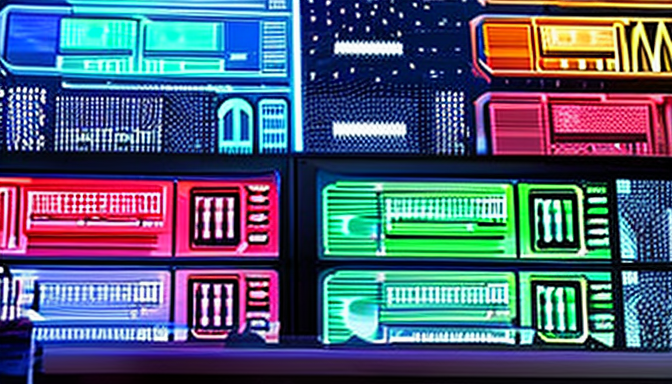
Conclusion
Oracles are essential components in the realm of blockchain technology, particularly in the context of smart contracts. They serve as bridges between the blockchain and the external world, enabling smart contracts to access and utilize real-world data. This functionality is critical for the execution of contracts that depend on information not stored on the blockchain, such as market prices, weather conditions, or event outcomes. Without oracles, smart contracts would be limited to operating solely within the confines of the blockchain, severely restricting their potential applications.
There are various types of oracles, including software oracles, which gather data from online sources, and hardware oracles, which connect physical devices to the blockchain. For instance, in the decentralized finance (DeFi) sector, software oracles are widely utilized to provide real-time price feeds for cryptocurrencies and other assets. A well-known example is Chainlink, which aggregates price data from multiple exchanges to ensure accuracy and reliability. This is crucial for trading platforms that rely on precise pricing to execute trades effectively.
However, the integration of oracles into blockchain systems is not without challenges. One significant concern is the security of the data provided by oracles. If an oracle is compromised, it may deliver inaccurate or manipulated data, leading to erroneous contract execution. This risk underscores the importance of implementing decentralized oracles, which aggregate data from multiple sources to mitigate the risk of single points of failure. Projects like Band Protocol exemplify this approach, enhancing data reliability and integrity.
Moreover, the decentralization of oracles is paramount for maintaining the integrity of smart contracts. By utilizing a network of nodes to validate and relay data, decentralized oracles can reduce the potential for manipulation and enhance trust among users. This is particularly important as the adoption of smart contracts expands across various industries, including finance, supply chain management, and healthcare.
In conclusion, oracles are indispensable to the functioning of smart contracts, enabling them to interact with real-world data. As the technology matures, addressing security and decentralization challenges will be paramount for their continued evolution. The future of oracles holds promise, with emerging trends such as the integration of artificial intelligence to improve data accuracy and predictive capabilities. By overcoming existing challenges, oracles can unlock new possibilities for smart contracts, paving the way for innovative applications that leverage real-time data effectively.
Frequently Asked Questions
- What are oracles in blockchain?
Oracles are systems that act as bridges between smart contracts and real-world data. They enable smart contracts to access external information, which is essential for executing decisions based on real-time events.
- What types of oracles exist?
There are several types of oracles, including software oracles, which fetch data from online sources, and hardware oracles, which connect physical devices to the blockchain. Additionally, oracles can be categorized as inbound or outbound, depending on their function.
- Why are decentralized oracles important?
Decentralized oracles enhance data integrity by aggregating information from multiple sources. This reduces the risk of manipulation and creates a more reliable environment for smart contracts, which is crucial for building trust in blockchain applications.
- What security challenges do oracles face?
Oracles are vulnerable to various security threats, such as hacking and data tampering. Common attacks include Sybil attacks and data spoofing, making it essential for developers to implement robust security measures to protect smart contracts.
- How can the risks associated with oracles be mitigated?
To mitigate risks, developers can use strategies such as multi-signature wallets, regular audits, and employing decentralized oracle networks to enhance the overall security and reliability of the data being used.
- What is the future of oracles in blockchain technology?
The future looks promising for oracles as they will play a crucial role in expanding smart contracts’ capabilities. Emerging trends include integrating artificial intelligence for improved data accuracy and exploring new use cases across various sectors.








